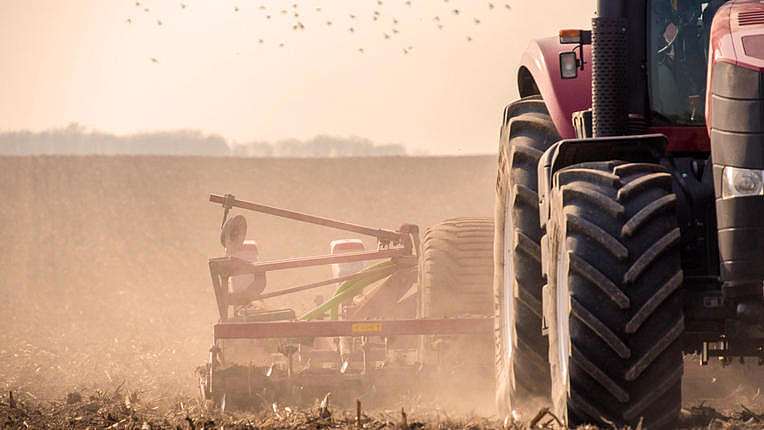
foodwatch/Christian Plambeck
Negotiations to attempt to align the next phase of the Common Agricultural Policy (CAP) to the EU Green Deal drag on. Yet the goal of a truly sustainable European agricultural policy will only be achieved alongside a courageous trade policy.
The world’s largest single market has the potential to give the global agricultural markets an ecological boost from which the whole world would benefit.
During the last 20 years, the EU has pumped a trillion euros of taxpayers’ money into the agricultural sector. To what end? Massive structural change and equally massive environmental damage have not been stopped.
On the contrary, small farms are closing daily and pollution of groundwater, decline in biodiversity and worsening soil quality continue. Ever higher yields are squeezed out of the animals at the cost of more and more ‘production diseases’.
Let’s not forget that animal husbandry is the cause of approximately 70% of greenhouse gas emissions in the agricultural sector.
This highly subsidised sector of the European economy is at the same time the world’s largest importer (mostly of feed) and largest exporter (mostly of animal and processed foods).
However, these key issues of interconnectedness with the world market are not even on the table in the paralysing debates on agricultural policy reform.
According to the EU’s “Farm to Fork” strategy, within the framework of the “EU Green Deal”, the primary goal of EU agricultural policy is to make it “sustainable”. To this end, incentives for organic investments as well as an expansion of organically farmed areas in connection with the organic label are on the table.
“Consumers should be empowered to choose sustainable food…”, the EU strategy states.
But appeals to consumers, contrary to what many think, do not make a significant contribution to an ecologically oriented policy that respects the interests of future generations.
Take the example of the organic label in Germany. The label has been around for 20 years, yet ‘conventional’ production of food still amounts to 93%, 97% for meat. Organic meat, therefore, has a market share of only 3%.
The much-cited ‘organic boom’ turns out to be an ‘organic fairy tale’ when considered next to the serious problems of conventional agriculture.
In order to have a truly effective ecological EU agricultural policy, appeals to consumer behaviour will not help, nor is it enough to simply “nurture” the marginal organic sector.
Instead, we must start with ‘conventional’ agriculture and deal with the legal regulations such as levies on pesticides and mineral fertilisers as well as those on animal husbandry and animal health.
Putting in place a tax on meat consumption, derived from the greenhouse gas emissions of the respective animal species, would be far more effective for dealing with climate change.
Animal welfare measures in agriculture are not after all an option; they are enshrined in European primary law. Article 13 of the EU Treaties requires that “full regard be had to the welfare requirements of animals as sentient beings”.
However, this creates a fundamental conflict of interests, which all discussions on reforming EU agricultural policy have so far avoided. Effective environmental and animal welfare measures make production in the internal market more expensive and expose EU producers to cheap imported products with lower environmental standards.
The EU can only avoid this dilemma if it protects its producers against this unequal competition. It can do this. In compliance with the rules of the International World Trade Organisation (WTO), it can put in place non-discriminatory measures vis-à-vis suppliers from third countries.
This could be through border adjustment payments equivalent to the burden of pesticide and mineral fertiliser levies and a meat tax in the internal market. Equivalent animal welfare standards for imports from third countries into the EU can be ensured through certification.
One consequence of these measures, however, would be an increase in the price of food on the internal market, which would have to be cushioned by social policy measures, for example by lowering the value-added tax.
However, such a consistent policy is not possible without calling into question the EU’s leading role in the world’s agricultural markets. It is not possible to want both a consistently ecological agriculture and to remain the world’s export/import champion.
The EU is shirking precisely this fundamental decision by putting forward the abstruse thesis in its “Farm to Fork” strategy that sustainable, i.e. organic, agriculture with necessarily higher prices is the prerequisite for strengthening the EU’s competitiveness.
Only with progressive environmental standards, supported by a courageous trade policy, a real difference can be made and this may be the reason to be proud of Europe that many citizens are looking for.
